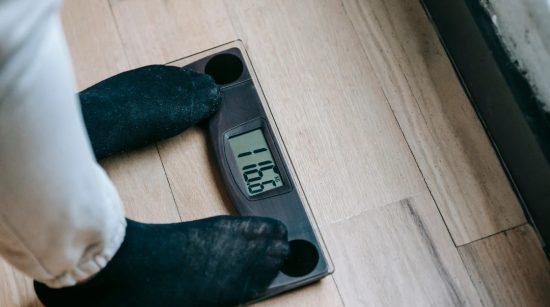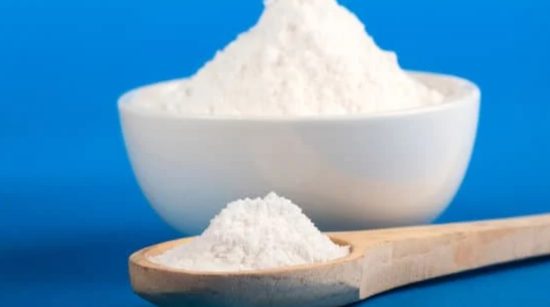Lowering your blood pressure is not only important for your overall health but also essential in reducing the risk of heart disease and stroke. Whether you’ve been diagnosed with hypertension or want to maintain a healthy blood pressure level, making lifestyle changes can have a significant impact.
In this blog post, we’ll explore ten effective strategies on how to lower blood pressure naturally. From maintaining a healthy weight to managing Stress, these tips will help you take control of your cardiovascular health and live a happier, healthier life. So, let’s dive in and discover the secrets of keeping your blood pressure in check!
Understanding High Blood Pressure
High blood pressure, also known as hypertension, is a common condition where the force of blood against the artery walls is consistently elevated. This condition can strain the heart and blood vessels over time, increasing the risk of serious health complications such as heart disease, stroke, and kidney issues. Hypertension often has no noticeable symptoms, making regular blood pressure monitoring essential for early detection and management.
Lifestyle factors like unhealthy diet, lack of physical activity, excess weight, smoking, and stress can contribute to high blood pressure. Understanding the importance of maintaining a healthy lifestyle, managing stress, and seeking medical advice for monitoring and treatment are crucial steps in managing hypertension and reducing the risk of associated health problems.
Importance of Maintaining Healthy Blood Pressure Levels
Maintaining healthy blood pressure levels is crucial for overall health and well-being as it directly impacts the cardiovascular system. Optimal blood pressure ensures that blood flows efficiently through the arteries, delivering oxygen and nutrients to vital organs like the heart, brain, and kidneys.
By keeping blood pressure within a healthy range, the risk of heart disease, stroke, and other cardiovascular complications is significantly reduced. Healthy blood pressure levels also support proper kidney function and help prevent damage to blood vessels.
Lifestyle modifications such as a balanced diet, regular exercise, stress management, and limiting alcohol and sodium intake are key factors in maintaining healthy blood pressure. Regular monitoring and preventive measures play a vital role in safeguarding long-term health and reducing the likelihood of hypertension-related issues.
How to Lower Blood Pressure?
1. Maintain a Healthy Weight

Maintaining a healthy weight is essential when it comes to lowering blood pressure. Excess weight puts strain on the heart and increases the risk of hypertension. But don’t worry, shedding those extra pounds doesn’t have to be a daunting task!
First and foremost, focus on adopting a balanced diet that promotes overall health. Fill your plate with an abundance of fruits and vegetables, which are packed with vitamins, minerals, and fibre. Incorporate whole grains into your meals for added nutritional benefits.
Regular physical activity is also a cornerstone of a healthy lifestyle. Incorporate aerobic exercises like walking, jogging, or swimming into your routine, as they can contribute to weight management and cardiovascular health.
Remember, these lifestyle changes work synergistically. Consult with your healthcare provider to create a personalized plan that aligns with your needs and health conditions. Making gradual, sustainable changes can lead to long-term improvements in your overall well-being and blood pressure.
2. Exercise Regularly

Moderate aerobic exercises such as brisk walking, jogging, swimming, or cycling are great options to get started. Aim for at least 150 minutes of moderate exercise per week or 75 minutes of vigorous activity if you’re up for the challenge. Remember that consistency is key when it comes to reaping the long-term benefits.
Engaging in these types of exercises helps strengthen your heart and improves its ability to pump blood efficiently throughout your body. This increased efficiency reduces the force exerted on the walls of your arteries, ultimately lowering your blood pressure over time.
Make sure to consult with a healthcare professional before starting any new exercise regimen, especially if you have pre-existing health conditions or concerns about intensity levels. They can provide guidance tailored specifically to you and ensure that you are exercising safely while effectively managing your blood pressure.
3. Reduce Sodium Intake

Reducing sodium intake is crucial for lowering blood pressure and improving cardiovascular health. Aim for a daily limit of 2,300 milligrams, ideally keeping it below 1,500 milligrams.
High sodium levels can lead to water retention and strain on the heart. Read food labels, choose low-sodium options, and cook at home to control salt. Use herbs and spices for flavour, be cautious when dining out, and prefer fresh over canned produce. Opt for whole grains to reduce sodium.
By making these changes, you’re taking significant steps toward better heart health and lower blood pressure. Remember, small adjustments can have a substantial impact!
4. Increase Potassium Intake

Increasing potassium intake is a valuable strategy for managing blood pressure. Bananas, rich in potassium, make a convenient snack or addition to smoothies. Oranges provide a refreshing source of both citrus flavour and potassium. Spinach, a versatile leafy green, adds nutritional value to sautés, salads, or smoothies.
Sweet potatoes, delicious in various preparations, offer ample potassium and contribute to maintaining healthy blood pressure. Tomatoes, though technically fruits, are versatile in salads and sauces, providing both sweetness and essential nutrients, including potassium.
Incorporating these potassium-rich foods into your diet, coupled with lifestyle adjustments like maintaining a healthy weight and reducing sodium intake, can significantly contribute to optimal blood pressure control without relying solely on Medication.
5. Limit Alcohol Consumption

Excessive alcohol consumption can negatively impact blood pressure, and it’s crucial to be mindful of your intake. Men should limit themselves to no more than two drinks per day, while women should aim for just one.
Alcohol can raise blood pressure by causing blood vessels to constrict, hindering the free flow of blood. Over time, excessive drinking can lead to weight gain and obesity, both contributing factors to high blood pressure. Additionally, alcohol provides empty calories that contribute significantly to overall caloric intake.
Regular heavy drinking can also harm the liver and kidneys, organs vital for regulating fluid balance and maintaining healthy blood pressure levels. Moderation in alcohol consumption is key to preserving optimal blood pressure and overall health.
6. Quit Smoking

Smoking is a significant contributor to high blood pressure, as the chemicals in cigarettes cause immediate blood vessel narrowing and a temporary spike in blood pressure. Continued Smoking can lead to long-term damage, increasing the risk of heart disease through plaque buildup in blood vessels.
Quitting Smoking is a crucial step in improving overall health and lowering blood pressure. Even within days of quitting, the body begins to repair itself, leading to improved circulation and reduced inflammation. While quitting may be challenging, the benefits are substantial, including enhanced lung function and decreased coughing within weeks to months.
For those seeking natural ways to lower blood pressure, quitting Smoking should be a top priority. Support from friends, family, or healthcare professionals can be invaluable on this journey toward better cardiovascular health. Remember, each step toward becoming smoke-free brings significant health improvements.
7. Manage Stress

Managing Stress is crucial for maintaining healthy blood pressure. Chronic Stress can raise blood pressure, but various techniques can help.
Regular exercise releases endorphins and provides an outlet for tension. Whether walking, hitting the gym, or doing yoga, finding a routine that suits your preferences can relieve Stress. Meditation, focusing on breathing, and deep breathing exercises reduce anxiety and promote relaxation.
Engaging in hobbies, like painting or gardening, offers a break from worries, bringing joy to the present moment. Social support is vital. Connecting with loved ones provides emotional comfort during stressful times.
Incorporate these stress-management techniques into your routine for better blood pressure and overall well-being. Prioritize self-care to manage Stress effectively.
8. Limit Caffeine

Limiting caffeine intake is important for managing blood pressure. Excessive caffeine consumption can temporarily raise blood pressure by stimulating the heart and constricting blood vessels. While the impact varies among individuals, monitoring your response is crucial, especially if you have hypertension.
Consider reducing caffeine if you are concerned about your blood pressure. Track daily consumption, including sources like tea, energy drinks, chocolate, and medications. Gradual reduction may be more manageable.
While the link between Caffeine and high blood pressure isn’t fully understood, limiting intake could potentially benefit those with cardiovascular concerns and improve overall health and sleep quality.
9. Get Enough Sleep

Adequate sleep is crucial for maintaining healthy blood pressure. Poor sleep or sleep apnea can contribute to hypertension, emphasizing the need for 7-9 hours of quality sleep each night.
Lack of sleep increases stress hormones like cortisol, raising blood pressure levels and disrupting natural processes regulating cardiovascular health. To ensure quality sleep, establish a consistent bedtime routine, create a comfortable sleeping environment, and avoid stimulating activities close to bedtime.
If sleep issues persist, consult a healthcare professional, especially if sleep apnea is suspected. Lifestyle changes or treatments like continuous positive airway pressure (CPAP) therapy may be recommended to improve sleep quality and reduce hypertension risk.
Prioritizing restful sleep not only benefits blood pressure but also enhances overall well-being. Make sleep a priority for better health outcomes.
10. Consider Medication

If lifestyle changes aren’t enough to lower blood pressure, consult a healthcare professional for medication recommendations. Medications work in various ways, such as relaxing blood vessels or reducing fluid. Always take Medication under supervision, with regular monitoring and open communication about side effects.
Medications complement lifestyle changes, not replace them. Maintain a healthy weight, exercise regularly, limit sodium intake, manage Stress, and follow other strategies for comprehensive cardiovascular health. Consult your healthcare provider for personalized guidance.
Conclusion
Lowering blood pressure is crucial for maintaining good overall health and reducing the risk of heart disease. By implementing these lifestyle changes, you can take control of your blood pressure levels and improve your well-being.
Remember to maintain a healthy weight through a balanced diet and regular exercise. Pay attention to your sodium intake by limiting processed foods and opting for potassium-rich alternatives. Limit alcohol consumption, quit Smoking, and find effective stress-management techniques that work for you.
Additionally, monitor your caffeine intake, ensure adequate sleep each night, and consult a healthcare professional if necessary. They may recommend Medication as part of your treatment plan.
Taking steps to lower blood pressure not only helps protect against cardiovascular issues but also promotes better overall health. Start making these positive changes today to live a healthier life tomorrow!
FAQs – How to Lower Blood Pressure?
What foods lower blood pressure?
Several foods can help:
- Fruits and vegetables: Rich in potassium, magnesium, and nitrates, which support healthy blood pressure levels.
- Fatty fish: Provide omega-3 fatty acids, which are beneficial for heart and blood vessel health.
- Low-fat dairy: Offers calcium and other nutrients linked to blood pressure control.
- Nuts and seeds: Packed with magnesium and potassium, contributing to lower blood pressure.
- Whole grains: Rich in fibre, which can help manage blood pressure.
Remember, it’s best to incorporate these foods into a balanced diet and consult a healthcare professional for personalized recommendations.
Does drinking water lower blood pressure?
Adequate hydration is crucial for overall health, and staying hydrated may indirectly impact blood pressure. Dehydration can stiffen blood vessels, contributing to higher readings. However, directly drinking water for blood pressure reduction requires further research.
Does lemon water lower blood pressure?
There isn’t definitive evidence that lemon water specifically lowers blood pressure. However, staying hydrated with any water, including lemon water, can contribute to overall health and potentially benefit blood pressure indirectly.
Is drinking hot water good for high blood pressure?
No direct link exists between drinking hot water and lower blood pressure. While staying hydrated is necessary, water temperature doesn’t significantly impact blood pressure itself.
What drinks should I avoid with high blood pressure?
- Sugary drinks: Soda, sweetened juices, and energy drinks raise blood pressure and contribute to unhealthy weight gain.
- Excessive alcohol: Overconsumption can significantly increase blood pressure.
- Coffee in moderation: While moderate coffee intake might be okay for some, consult your doctor for personalized advice, especially if sensitive to Caffeine.

